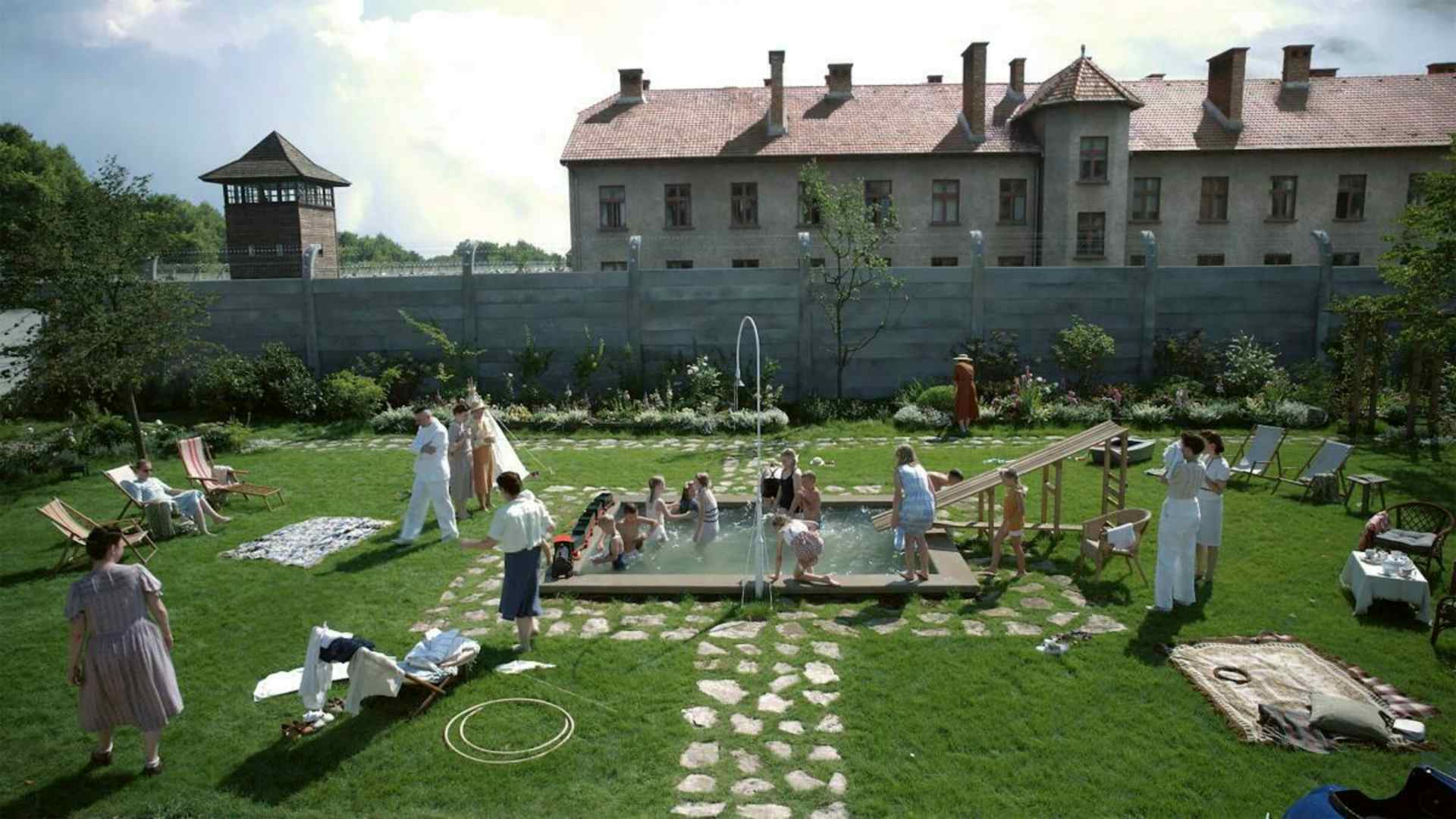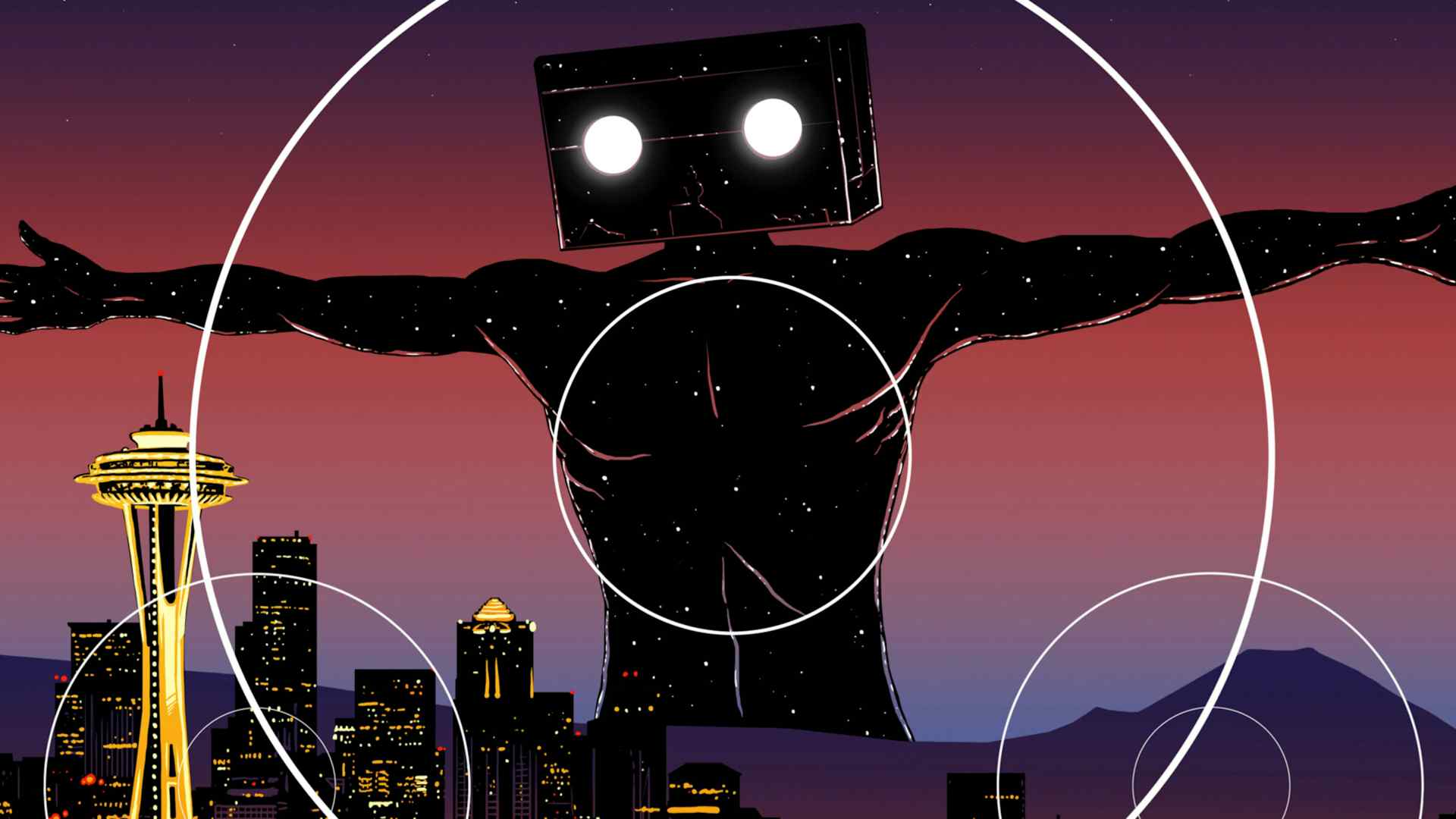Robert Horton is a Scarecrow board member and a longtime film critic. This series of "critic's notes" is chance to highlight worthy films playing locally and connect them to the riches of Scarecrow's collection.

More 2023 films occupying local screens this week, including Jonathan Glazer's The Zone of Interest, now playing at the Uptown, and Steve McQueen's Occupied City, bowing at the Grand Illusion Jan. 21st.
The Zone of Interest
Free-associating about The Zone of Interest keeps bringing me back to Oppenheimer, and I think this is forgivable: both films take on serious subjects based on real-life midcentury circumstances, and both have strong directors exercising extremely distinctive approaches (not at all of the conventionally realistic variety) to their subjects. But the styles are so very different. In Oppenheimer Christopher Nolan shapes his material with an assertive forward thrust that straps the viewer into his hurtling narrative, which (this being a Nolan movie) zips around in different time frames: a history lesson as pinball machine.
Jonathan Glazer goes the other direction in The Zone of Interest, a film about the real-life commandant of Auschwitz and his family, who lived in monstrously banal circumstances in a tidy family home next door to the extermination camp. Here the camera is distanced, icy, the pace deliberate. Nolan draws you into the maelstrom, Glazer forces you to merely observe. Both films rely on complex soundtracking, although Nolan's love of Ludwig Göransson's music puts that element front and center, while Glazer allows Mica Levi's score to merge with the unsettling hums and screams of the film's sound design—indeed, it gets its own "overture" with a black screen as the film begins.
One other similarity: In both films, the ideas are grasped fairly easily. But each filmmaker wants to put you through an experience, one that resists capsulizing these movies into one-sentence themes. Here, Nolan and Glazer are in the spirit of a key directorial inspiration for them both, Stanley Kubrick, whose celebrated comment that he intended 2001: A Space Odyssey to be akin to music is perhaps relevant to these titles.
In short, you can "get" The Zone of Interest in its first ten minutes, as we realize that the daily domestic habits of Rudolf and Hedwig Höss (Christian Friedel and Sandra Hüller) are taking place within a few yards of the Auschwitz walls. For the commandant and his wife, it's a dream assignment: the countryside, the socializing, the gardens, the space for the kids to play. Sometimes the smoke drifts across. And the shouts, the screams.
We see this world for almost two hours, without ever peering inside the walls of the camp, although Glazer varies his strategy in the final few minutes. The film's organization would suggest repetitiousness, but this isn't true—Glazer finds new ways of seeing things, and there is no end to the shock waves that ripple across the scenes. And Friedel and Hüller are compelling, even if the camera rarely allows us to get close to them, their body language articulate and terrible. You can't get numb to this depiction of the horror, not when Hedwig proudly tries on a new—well, second-hand—mink coat that has just arrived at the house. The film need not hint about the coat's origin. We know. She checks the pockets, and finds a tube of lipstick there. As I said, the film won't allow you get numb.
Occupied City
Another depiction of the Holocaust that does not depict the Holocaust, Occupied City stakes its claim as an experiential, experimental documentary. The visual presentation consists entirely of new, sharply-shot footage of Amsterdam, accompanied by the voice of a narrator who describes people and events of the Nazi occupation years. We hear about what happened in corners and squares of the city, and see the humdrum events happening there now.
This goes on for four hours. The duration is effective; you are bearing witness, and it requires a commitment. The weight accumulates. This approach is closer to Steve McQueen's early work as a museum-installation kind of artist than to his other movies, and maybe this is his best mode. The information is drawn from a book by Bianca Stigter, Atlas of an Occupied City (Amsterdam 1940-1945); she is McQueen's wife, and the director of the fascinating Three Minutes: A Lengthening. The words, plain and functional, are read by Melanie Hyams, and her neutral delivery is a large part of the hypnotic impact.
Shot during the pandemic, there are scene of masked people, accompanied by notes about Nazi round-ups and dictatorial laws. I have no idea what McQueen is doing by juxtaposing these things—and if it's random, it still feels odd and irresponsible to allow some kind of correspondence to live there. Except for that curious wrinkle, the concept is haunting, an absorbing meditation on how history lives on every foot of ground.
January 19, 2024


